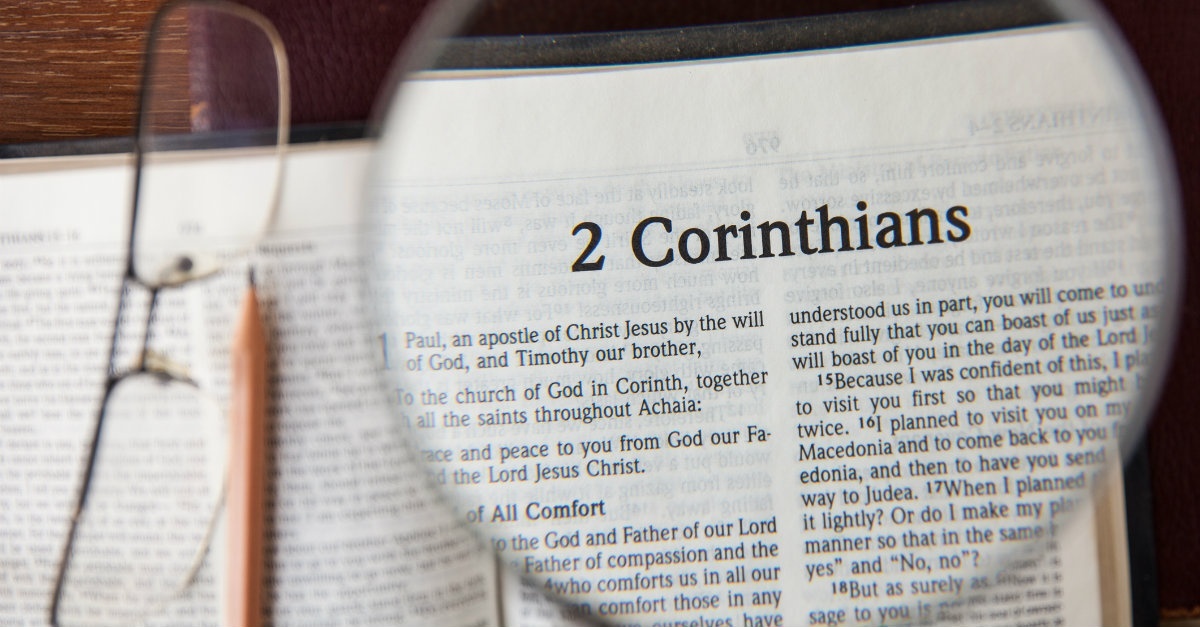 (S)Paul of Tarsus is, after Jesus, the most consequential New Testament figure. Many would, with some validity, claim (S)Paul’s influence on the development of Christian theology has even been greater than that of Christ himself. A prolific writer, he also serves as one of the main characters in Luke’s Acts of the Apostles. (S)Paul was born in Tarsus (Acts 9:11) but raised in Jerusalem (Acts 22:3). Having Roman citizenship, he was well traveled and one of the most cosmopolitan of the New Testament characters. He was instrumental in the early Church’s shift of focus from Jerusalem to Antioch – though we will see in 2 Corinthians that this is more complex than it immediately seems. Antioch was where Jesus followers were first called Christians and remains the center of Western Rite Syriac Christians.
(S)Paul of Tarsus is, after Jesus, the most consequential New Testament figure. Many would, with some validity, claim (S)Paul’s influence on the development of Christian theology has even been greater than that of Christ himself. A prolific writer, he also serves as one of the main characters in Luke’s Acts of the Apostles. (S)Paul was born in Tarsus (Acts 9:11) but raised in Jerusalem (Acts 22:3). Having Roman citizenship, he was well traveled and one of the most cosmopolitan of the New Testament characters. He was instrumental in the early Church’s shift of focus from Jerusalem to Antioch – though we will see in 2 Corinthians that this is more complex than it immediately seems. Antioch was where Jesus followers were first called Christians and remains the center of Western Rite Syriac Christians.
Ancient Corinth was a major Greek city during the time of (S)Paul. It was his practice to travel to various cities on his missionary journeys. Acts suggests that he would go to cities with stable Jewish populations. Using synagogues as his launching pad, he would reach righteous Gentiles and convert them to Christianity. His letters, including this one, are unique because of his predominantly Gentile audience – in contrast to Luke’s writing, for instance. Because 2 Corinthians touches on so many topics, I have chosen to focus my reflections on 2 Corinthians 8-9.
The selected passage is important for many reasons. First, it is worth noting that, at least at first glance, (S)Paul’s tone might seem more manipulative than a modern reader would be comfortable with. He writes to the Corinthians in several paragraphs about how important it is for them to give, how he’ll be so disappointed if they do not give, how the broader Church will be disappointed if they do not give, how they should be embarrassed if they do not give, and how he is not only writing them to ensure they give but also sending three people ahead of him for good measure. Still, he writes that they should only give gladly and not due to pressure. This seems to border on the absurd. He certainly seems to be pressuring them into giving.
To be fair to (S)Paul, giving is an essential aspect of church life. Giving of time, talent, and treasurer is a vow many take when being baptized, declaring their faith, officially joining a congregation, etc. In our modern context, financial giving not only pays staff, bills, and taxes but furthers the mission of the church through local and global service. Despite financial giving being such a high priority for congregational leadership, it is not a priority for most members. Studies show than less than ¼ of a congregation tithes. 80% of tithers are giving at just a 2.0-2.5% rate. (The Hebrew Scripture’s standard is 10%.) This lackluster giving rate is even below that during the Great Depression when Christians gave at a rate of 3.3%.
 There is also some reason to believe that those who have the least to give actually give the most. Broadening the conversation to charitable giving, the lowest income bracket, people making less than $20,000 annually, give 4.3% of their income to charity. Remaining income levels give at an average of 2.3%. Counting the three lowest income levels (i.e., those making less than $58,000), which are the three most generous per capita, they average a giving rate of 3.2% compared to $2.0 for those making $58,000+. This should not surprise us. Nor should it go without recognizing that Jesus praises this sort of behavior. The Scriptures say:
There is also some reason to believe that those who have the least to give actually give the most. Broadening the conversation to charitable giving, the lowest income bracket, people making less than $20,000 annually, give 4.3% of their income to charity. Remaining income levels give at an average of 2.3%. Counting the three lowest income levels (i.e., those making less than $58,000), which are the three most generous per capita, they average a giving rate of 3.2% compared to $2.0 for those making $58,000+. This should not surprise us. Nor should it go without recognizing that Jesus praises this sort of behavior. The Scriptures say:
While Jesus was in the Temple, he watched the rich people dropping their gifts in the collection box. Then a poor widow came by and dropped in two small coins. “I tell you the truth,” Jesus said, “this poor widow has given more than all the rest of them. For they have given a tiny part of their surplus, but she, poor as she is, has given everything she has.” – Luke 21:1-4 (NLT)
This is an important image as we think about urban ministry. While the national poverty rate is 13.5%, the urban poverty rate is 16%. Further, urban poverty is growing increasingly concentrated. In Dayton, Ohio, the urban area nearest me, 60.3% of the poor live in neighborhoods with a 20%+ poverty rate.
Beyond tithing, these chapters illustrate the importance of Christian stewardship, more broadly. I think the most meaningful aspect of the passage for urban ministry is that it illustrates the importance of building a network of support, ideally connected to a sending congregation. I really like the early model of Jerusalem, the mother church, sending apostles out to plant other churches. I appreciate that these congregations did not only have a relationship with the mother church but with one another as well. This relationship included prayer, fellowship, and some degree of shared finances. In a modern context, I believe this model remains relevant. If urban ministry, especially church planting, is to succeed, it will take a lot of prayer. New church starts will almost certainly need connection with other, more established, congregations. And, this connection will almost certainly need to go beyond fellowship to financial support. I have been pleased to see many seminaries, as well as large, influential churches, establishing entrepreneurial ministry training programs in recent years. I think this is a really excellent idea. As I think of future ministry opportunities, money is clearly an object. I do not believe this is my succumbing to modern temptations. (S)Paul understood the power and importance of money in ministry.
 Image Credits: Crosswalk, Fuller Youth Institute, and Teen Quest.
Image Credits: Crosswalk, Fuller Youth Institute, and Teen Quest.

